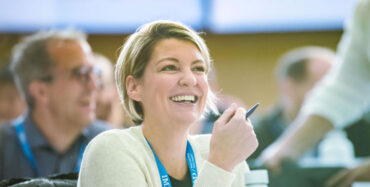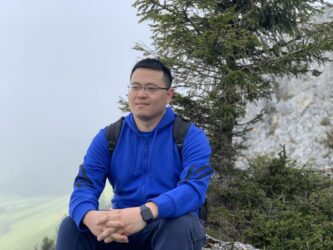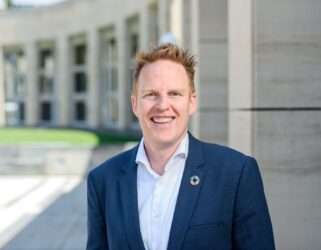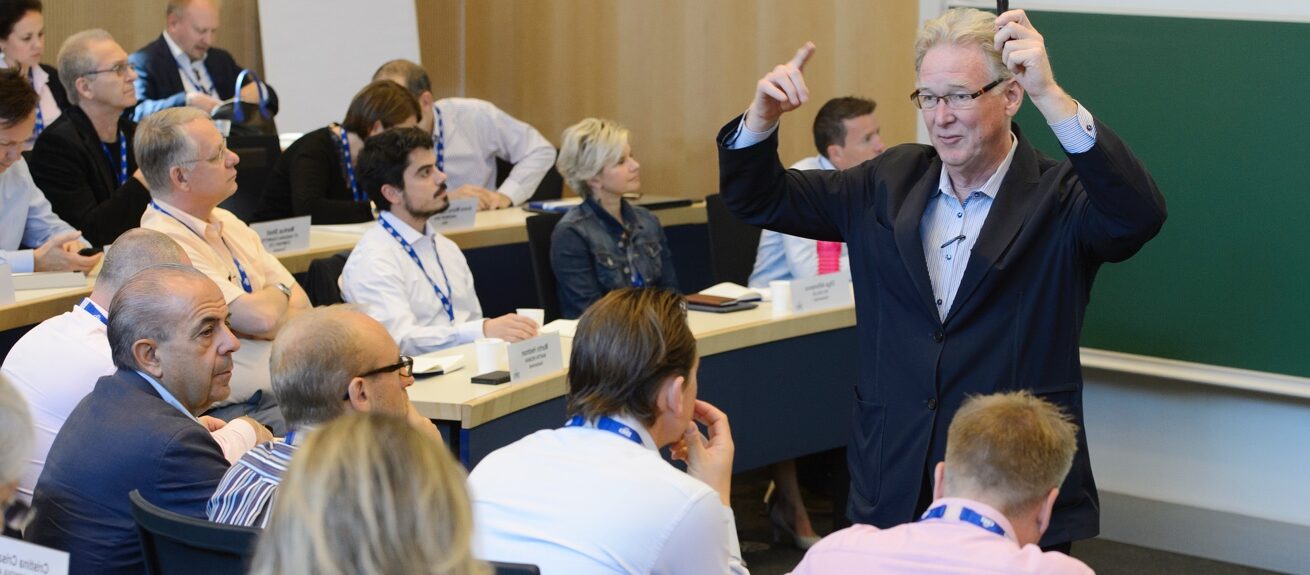
When Vito Angelillo attended IMD’s HPL (High performance leadership)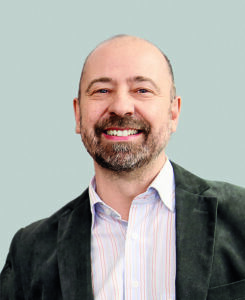
In many ways, NGOs are a business like any other business, Angelillo explained, with the same degree of professionalism required to face complex issues, but with their own characteristics and perspectives. NGOs are not profit driven; they have stakeholders, not shareholders, and often go where investment dares not. But they face, for instance, comparable issues in HR, finance and logistics.
The organization that Angelillo heads, Terre des hommes, is the leading Swiss child relief agency dedicated to improving the lives of millions of vulnerable children around the globe. With more than 1800 collaborators and delegations in five geographic zones, Angelillo wanted to implement a common culture of management and leadership resting on the pillars of common values, shared vision, open and courageous interactions with others and full commitment.
Turning to IMD
The origin of the collaboration between IMD and Tdh goes back to 2001-2003, when Jean-Pierre Heiniger started to work as an executive coach on Leadership programs at IMD, as well as a psychosocial advisor at Tdh. He was part of the core team that designed the HPL program with Prof. George Kohlrieser, a friend and colleague since 1989. In 2004, Jean-Pierre invited George, who had become the HPL program director, for a training workshop in Palestine on HPL concepts. More precisely, on grief work with local professionals from Tdh, working mainly with traumatized children in the occupied territories. George offered his services for free to Tdh. This created the bedrock of what was to become a long-term relationship between the two institutions. Jean-Pierre’s vision was that Tdh’s management team needed to reinforce its leadership skills by integrating the HPL concepts. He wanted to promote the transfer of competences and an exchange of experience, bridging the two organizational cultures: the world of business and the humanitarian world (NGOs). In 2010, the former CEO, as well as the HR Director, Michel Muller, attended HPL. Michel was to become instrumental in developing the relationship with IMD and convinced Angelillo when he joined Tdh that he, too, should take part in the HPL program, since it offered the right framework and methodology for the organisation.
“It was really what I was looking for, Angelillo says, not a sum of Excel spreadsheets or to-do lists, but the key concept that an organization benefits from the leadership qualities in each individual.”
The objective was to distill the culture of leadership throughout the organization, an ambitious project considering the wide variety of cultures and more than 27 nationalities. “Initially, we had to find a common language at management level, make sure that we could integrate our different layers of understanding, our different experiences.”
The answer came from Secure base leadership (SBL), the concept on which the HPL program is based and that promotes “care to dare” and “play to win” attitudes, to the benefit of everyone in the organization which, in turn, brings out leadership qualities all.
“It is an intense and incredible journey,” Angelillo observes. “HPL is a great balance between tools, methodology and personal exchanges, and even therapy, for some.”
He came out of the session even more convinced on two things:
- That all Tdh managers should attend the IMD’s HPL program (14 have to date, but more will yet)
- That the SBL approach needs to be integrated into the entire organization
A few month later, a three and a half days’ session was organized and led by Jean-Pierre, with the support of a team of HPL coaches and George, who all came on their free time. The session took place at Tdh’s headquarters in Lausanne to allow the participation of about 40 country delegates and managers from around the world, who were joined by as many headquarters team leaders. Later on, a special session was organized for the Tdh managers of West Africa, in Burkina Faso by Michel and Jean-Pierre. And SBL was integrated in the introduction week, compulsory for all new recruits, from trainees to top managers. As a result, SBL is sweeping through the organization and is now part of the global organization’s development strategy.
“We needed a strong partnership to plant the seeds and train the managers, but we now have an internal training program for the implementation on a larger scale which covers part of our needs. Thanks to George, Jean-Pierre and IMD for their generosity!”
Helping an NGO face complexity
Tdh’s director dismisses the commonly-held idea that NGOs are less complex to run than a corporation that delivers quarterly results. On the contrary, they are at the front line of crises that require immediate responses, but must also work on the long term to ensure sustainable impact. Strict rules and processes must be in place at all levels and once they are, Angelillo believes that collaborators should be given more space to improve the solutions. The organization is currently in the development phase of allowing for greater collective intelligence, which Angelillo sees as yet another benefit of SBL.
He mentions the success of a program in Burkina Faso, a country with only 500 doctors for a population of 17 million and where health care is provided by personnel with little training and few resources. In more than 270 primary health care centers, the rate of correct diagnosis and treatment for child mortal illnesses was raised from a few percentage points to over 65 percent through a Tdh project: IeDA, acronym for Integrated e-Diagnostic Approach, an innovative methodology using digital tablets and special online software to improve the medical treatment provided to children, which was first launched on small, solar-powered computers. Thanks to Tdh’s advocacy work over the past years, a law has since been passed by Burkina Faso’s parliament that guarantees free access to health care for all mothers and their children under the age of five. “That’s why we need highly qualified people who know how to interact and negotiate at the highest levels of government.”
Angelillo points out that when NGOs contribute to stabilize the socio-economic conditions in a country, they are making it easier for investment to move in.
The core message of IMD’s HPL
“HPL is not just cosmetic or one more management program: it is about the most profound individual roots and mechanisms on which leadership can be developed. IMD has created a very powerful tool, which unleashes the full potential of the participants. The core message is that the right balance between a caring attitude and a daring spirit allows one’s energies to be entirely dedicated to impact, and when brought to organizational level reinforces the feeling of being part of something coherent with a playing to win mindset.” Angelillo is convinced that the introduction of a clear and strong culture of Secure Base Leadership “is a gift to people and organizations and helps these becoming better places to work with and having more positive impact on the world”. He wishes that it be widely made available to younger people as well.
Vito Angelillo’s career path
Started his training at EPFL in physics, switched to geology and then to geophysics because he “wanted to see the world”. Worked for 5 years in water survey in Sahel (West Africa), then for 7 years as an international business geotechnics and environmental consultancy engineer before switching back to the social sector at Swiss national level with Caritas (10 years) and then as the state of Geneva’s Director of social insertion (5 years). Director General of Terre des hommes since December 2012.
